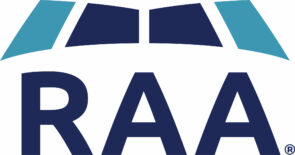
PAYING OFF DEBT VERSUS INVESTING
- Posted by Brad Bridgewater
- On February 17, 2017
- debt, interest, investment
A common question faced by many of our clients at this time of year is whether it is better to take lump sums such as tax refunds and bonuses to pay off debt or invest for the future. The answer depends on your individual circumstances, but the following are some considerations that can help you make a decision that’s right for you.
There is an intrinsic time value of money. Generally speaking, this means that the money you have today will be worth more in the future. The reverse is also true. If you have a debt, it will cost you more in the future, as it will continue to accrue interest until it has been paid in full. Here is a simple example:
Suppose you take out a loan for $10,000 with an interest rate of 8%. You intend to pay back the loan in 12 months by making equal monthly payments. When the loan is paid back, you will have paid the initial sum ($10,000) plus $440 in interest. You paid $10,440 for $10,000.
GOOD DEBT VERSUS BAD DEBT
This isn’t to say that all debt is bad. Debts such as home loans are considered “good debts,” as (hopefully) the price appreciation of your home will create more value than the cost of the loan. For example, let’s say you borrowed $500,000 to purchase a home using a 20-year loan with a 4.5% interest rate. At the end of 20 years, you paid roughly $760,000. However, today your home is worth $950,000. You made money on your debt!
Another example of good debt is borrowing against your home’s value at a lower interest to pay off “bad debt.” Bad debt is generally debt that was used to finance the purchase of a depreciating asset (something that becomes less valuable over time, like a car or clothes), and/or carries a high-interest rate.
DEBT REDUCTION STRATEGIES
Regardless of what the funds were used for, you should always consider the interest rate attached to a debt and see if you can find a lower or better rate through a different vehicle or provider. It goes without saying that debts with high-interest rates should be paid off as soon as possible for maximum savings. Again, paying down debt will save you money in the long term.
A good strategy to help you make an informed decision about paying off debt versus investing is to list your debts in order from the smallest balances to the highest. Pay off the smallest debts first, and make sure you continue to pay at least the required minimum payment on the others so that you don’t incur penalties or late fees. When you pay off a debt, redirect the payment amount of that retired loan to the next debt on your list. And then when you pay off the next loan, do the same. That way you “accelerate” debt payments and before you know it, you’re “bad debt” free! You can also determine if the interest rates you’re being charged make it feasible to both pay down debt and invest at the same time.
Another great strategy is to create a reasonable budget and stick to it. Living on less than what you make enables you to pay outstanding debts. It also frees up income and other assets for smart investment decisions that are aligned with your long-term goals.
INVESTING
Of course, money that you are using to pay down debt is money that could have instead been invested. This is known as the opportunity cost – the loss of potential gain from other alternatives when one alternative is chosen. If you make the decision to pay off all of your debt instead of investing, you might miss out on the compounding effect of saving over a long period of time. Shorter investment time horizons can also increase your risk profile.
One opportunity you shouldn’t overlook to increase savings is your employer’s matching contribution to your 401(k) or 403(b) plan. We always advise our clients to contribute (at a minimum) an amount that equals the matching funds as this is essentially free money.
In summary, the best approach to the question of “should I pay down debt or invest” is a balanced approach. Pay off debts that have high rates and/or are not invested in appreciating assets like a home or a business. At the same time, take advantage of opportunities like employer matching and dollar-cost averaging to keep your investment strategy moving forward.
If you would like to discuss how to balance investing and reducing your debt, and how these goals fit into your financial plan, request a call with an advisor at RAA.
Disclaimer: This blog is intended for informational purposes only and should not be construed as individual investment advice. Actual recommendations are provided by RAA following consultation and are custom-tailored to each investor’s unique needs and circumstances. The information contained herein is from sources believed to be accurate and reliable. However, RAA accepts no legal responsibility for any errors or omissions. Investments in stocks, bonds, and mutual funds may increase or decrease in value. Past performance is no guarantee of future results. Any of the charts and graphs included in this blog are not recommendations for the purchase and sale of any security.



0 Comments